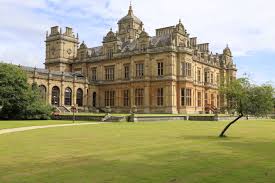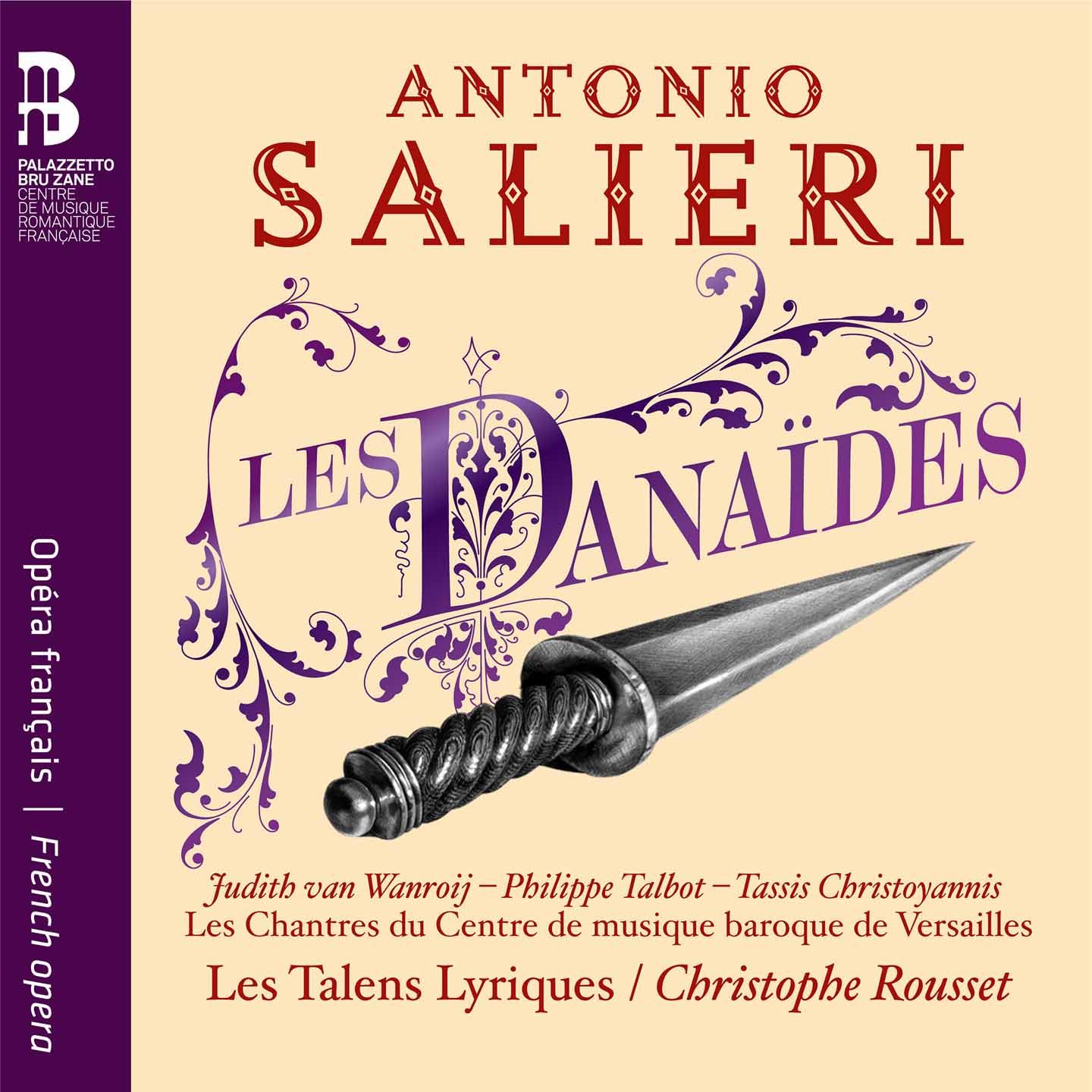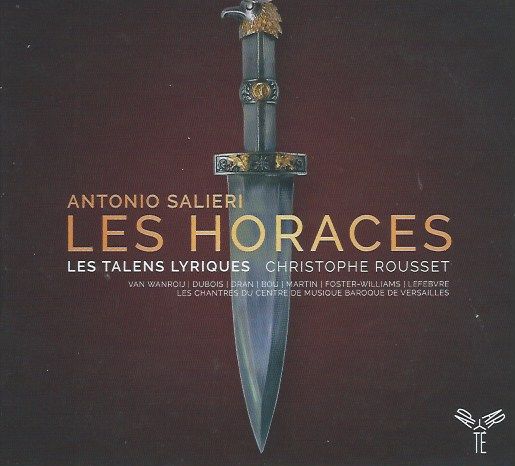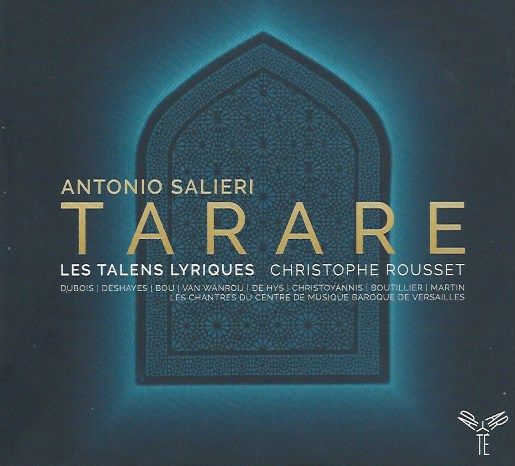
Antonio Salieri La locandiera (‘The Landlady’) (1773)
Performances:
The Deanery Garden, Bampto, Oxfordshire, Friday 18, Saturday 19 July
Westonbirt School, Gloucestershire: Monday 25 August
The Barn at Old Walland, Wadhurst, Sussex: Saturday 6 September
London performance to be announced
Bampton Classical Opera is delighted to announce their 2025 summer production will be Antonio Salieri’s comic opera La locandiera, marking the 200th anniversary of the composer’s death. It will be sung in a new English translation by Gilly French as ‘The Landlady’ and will be the fifth opera by Salieri that the company has staged.
Antonio Salieri’s La locandiera (‘The Landlady’) with a libretto by Domenico Poggi was first performed in Vienna in 1773 when the press commented “Both words and music received loud and deserved applause”. The plot is based closely on what is considered to be one of Carlo Goldoni’s finest-crafted plays, in which the feisty innkeeper Mirandolina determines to ‘educate’ a committed misogynist Cavalier, whilst also playing off the ardent affections of a foolish Count and a timid Marquis.
There is a performance of this available conducted by Fabio Luisi . If you follow this link, it should take you to.a playlist of the entire opera, or alternatively, here’s the opening sinfonia:
Bampton Classical Opera, twice a finalist in the International Opera Awards, marks the 200th anniversary of Salieri’s death with a new sparkling production of this witty and tuneful comedy of manners, sung in English. Andrew Griffiths conducts and Jeremy Gray directs, with a lively cast of some of the UK’s finest young singers.
Bampton has previously performed four great Salieri operas, including the UK premieres of Falstaff and La fiera di Venezia, which was shortlisted for the 2023 International Opera Awards, also the UK modern times premieres of La grotta di Trofonio and La scuola de’gelosi. Bampton’s production of Salieri’s La locandiera will again demonstrate how skilled the composer was at creating melodious and exciting comic opera, revealing the genius of this somewhat maligned composer.
Further details of Bampton Classical Opera’s production including casting will be announced in due course. Booking will open in mid-February.
Bampton Classical Opera stages productions in rural venues in Oxfordshire and Gloucestershire as well as regularly in London at St John’s Smith Square. Other significant venues and festivals have included Wigmore Hall and Purcell Room, Buxton Festival, Cheltenham Festival and Theatre Royal Bath. Eschewing familiar repertoire, Bampton concentrates instead on rarities from the late eighteenth century, sung in lively new English translations, and has given many enterprising performances of forgotten operas. Amongst these have been UK premières of Bertoni Orfeo, Marcos Portugal The Marriage of Figaro, Paer Leonora, Benda Romeo and Juliet, Gluck Il Parnaso confuso, Philemon and Baucis and Salieri Falstaff and La fiera di Venezia.
Bampton Classical Opera was a finalist in the Rediscovered Opera category of the 2020 International Opera Awards for Stephen Storace Gli sposi malcontenti (Bride and Gloom), and its recent production of Salieri La fiera di Venezia (At the Venice Fair) was shortlisted for the 2023 Awards.
And just as a reminder, here’s Classical Explorer‘s previous post on Salieri opera, rounding up several salient recordings and introducing several operas:
Salieri opera, I hear you say? He of Amadeus fame? I’m not really one for populist links, but that film did bring to the public’s awareness the name of Antonio Salieri. Christophe Rousset has long believed in the importance of Salieri’s music, and his most recent release of Salieri’s opera Armida offers us a timely opportunity for a look at the composer’s adventures.
Born in Legnano (near Verona) in 1750, Salieri’s vital contributions to the sphere of opera become clear when one hears these magnificent scores. Gluck, of course , influenced his output; as director of Italian opera in Vienna, he held a post of real weight: he taught Liszt, Schubert, Beethoven and Hummel. He had nearly 40 operas staged within his lifetime (including a Falstaff). We know him today mainly through Peter Schaffer’s film Amadeus, although we should also remember that Rimsky-Korsakov wrote an opera in 1831, Mozart and Salieri, after the Pushkin play. I was going to share the Chandos performance (I Musici de Montreal/Turovsky, currently only available as a playable CDR) but here instead is a Russian performance from 1948, with score: Samuil Samosud (conductor), Stanislavsky and Nemirov-Danchenko Music Theatre, Sergey Lemeshev (Mozart), Alexander Pirogov (Salieri).
I should also poi out an excellent performance of this opera in the Hänssler Classics box set of Rimsky operas, Lenindrad, 1943 conducted Eduard Grikurov with Boris Gmyrja as Salieri and Konstantin Ogrevoj as Mozart; that disc also includes a filler of part of the first performance of the opera in the UK, Albert Hall October 11, 1927 with the great Feodo Chaliapin as Salieri.
Anyway, back to Salieri himself. Far more than a player in Mozart’s life, Salieri’s own works are both beautiful and dramatic. One man has pretty much single-handedly taken the ball and ran with it: Christophe Rousset began his excavations on disc with the release in 2005 of La grotta di Trofonio on the Ambroise label. La Grotta, first performed 1785, influenced Mozart, particularly perhaps Così fan tutte, premiered five years later in its story; but Rousset feels it is closer in ambience to Don Giovanni. “The Overture sets up this gloomy atmosphere,” Rousset told me recently, “Very evocative of Don Giovanni. There is Così of course in the libretto [with the play of couples], but there is magic too. This opera is enchanting, delightful; it should be done more often”. How right he is. Here’s the Overture/Sinfonia:
Interestingly, La Grotta di Trofonio was performed at St John’s Smith Square, London, in 2015 by Bampton Classical Opera, a performance which to my shame I missed.
In La Grotta, it seems to be the ensembles in which Salieri excels, offering a deliciously light touch and comic demeanour. The result of a series of performances in Lausanne in 2004, the cast might not be a star-filled one but it is a beautifully chosen one; perhaps one should make mention of the fabulous soprano Marie Arnet as Dori and the brilliantly focused baritone Olivier Lallouette as Aristone (try his “Da una fonte istesso as an example of both voice and orchestra, Les Talens Lyriques, on top form). Trofonio himself is the most amazingly forceful bass (Carlo Lepore). But it is to the mastery of the music we must look: Salieri in dark mode (“Spiriti invisibili”) reminds us that there is a composer here with a real voice; as does the finale of the first act, which has something of a Mozartean sense of expectation at the beginning, as if Salieri is working on teh largest canvas; similarly, the sense of elation at the end is comparable with that which closes Mozart’s opere buffe.
Les Talens Lyriques recently completed their recordings of Salieri’s blood-thirsty French operas: Les Danaïdes, a five act tragédie lyrique (released 2017, an opera on the figure of Hypermnestra – “Hypermnestre” – and much praised by no less a figure than Hector Berlioz); Les Horaces (released 2018), and Tarare (2019, completing the French trilogy of Salieri operas). Rousset waxes lyrical about the final scene of Danaïdes: “It is really incredible, it is so Romantic, it opens to a new way of writing music. It reminds me of Cherubini’s Medée, it has incredible strength. Berlioz would have known this opera, it was revived at Paris Opéra: of the three French operas, Danaïdes is the one that looks forward the most”. Here’s that very finale:

Les Horaces is very much ahead of its time, capturing the tension in the air prior to the French Revolution; Les Danaïdes is notably bloody in its plot while Tarare anticipates the French Revolution’s events by having the General Tarare of the title murdering a corrupt despot.

The music of Les Horaces blazes forth from the very opening. You can hear the spirit of the music in this short video in which Christophe Rousset introduces (in French, with subtitles) the opera:
Tarare is simply magnificent. This is a a “tragédie-lyrique en trois actes,” as indicated by the front page of its first publication (reproduced in the excellent, lavish booklet). Set in the reign of Tulius Hostillus (7th century BCE) a tale of power struggles but also of the loves of Camilla. Two “intermèdes” offer supplementary scenes: it’s a brilliant structural concept, and each “interméde” has a different feel: ceremonial for the first, majesterial pomp for the second.
There’s also the most incredible tenor there in the cast, Cyrille Dubois, who sings the role of Tarare (he had also excelled in Lully’s Persée, Alpha 967, not to mention as Curiace in Les Horaces). Tarare seemed to prove Salieri as a worthy successor to Gluck; set to a Beaumarchas libretto, the plot plugs into pre-Revolutionary idea of egalité.
T0 get a feel for the ambience of the opera, try the Act IV scena for Astasie (brilliantly, dramatically sung by Karine Deshayes):
(There’s also a DVD of Tarare on Arthaus, Jean-Claude Malgiore with Deutsche Händel Solisten from Schwetzingen).

Magic and the supernatural is a prevailing thread. We saw it in La Grotta di Trofonio – Trofonio is the magician who causes two pairs to exchange character traits: extrovert becomes introvert and vice versa. And now Armida (sung in Italian) for the Aparté label adds to the picture. Its release has offered the perfect opportunity to look back on Rousset’s previous releases . Rousset’s appetite for musical discovery seems endless; he is the perfect melding of musicologist and active artist who marshalls the finest of forces.
The timing of the release of Armida is no accident: premiered in Vienna, 1771, 2021 finds it celebrating a youthful 250 years. Why youthful? In thiis performance at least, it emerges vibrantly from the page, as fresh, surely, as it was in its time. Whie Cecilia Bartoli’s The Salieri Album featured an aria from it (in a different edition thatthe one Rousset uses), this is its first complete recording. While thsi is far from the only setting of the Armida story (Gluck, Handel – as Rinaldo – spring to mind), it is certainly an unforgettable one. The story, in which East is pitted against West, with crossover love between a Christian crusader and a Saracen sorceress, brought success to Salieri in Vienna.
The cast is, as so often with Rousset, impeccably chosen. Ashley Riches is a singer who seems to be everywhere at the moment: here he sings Ubaldi, offering unfettered virtuosity in his “Finta larva”:
Devotees of Classical Explorer might recognise the name of Teresa Iervolino, who shone on Rousset’s recent Mozart Betulia Liberata; here she takes the role of Ismene. Let’s hear Lenneke Ruiten, though, our Armida, in duet with Rinaldo (we hear Rinaldo first – Florie Valiquette) in the second act:
Having heard all of these operas through, it is difficult if not impossible to light upon a favourite: perhaps the new Armida has a dramatic freshness that grips from first to last, but I for one would certainly not be without Tarare and Les Horaces.









